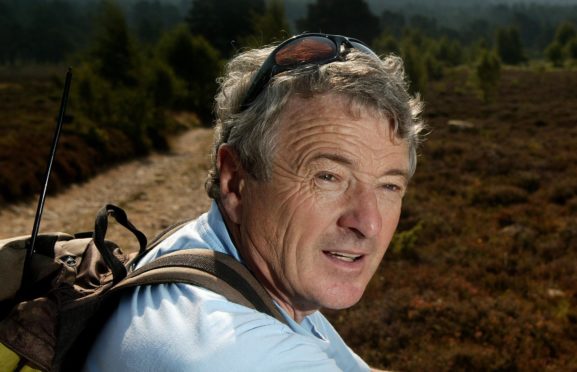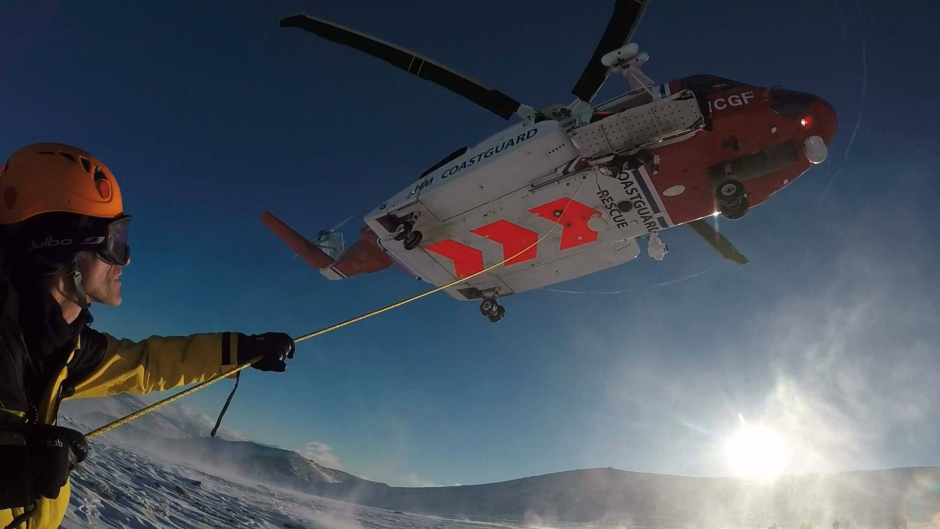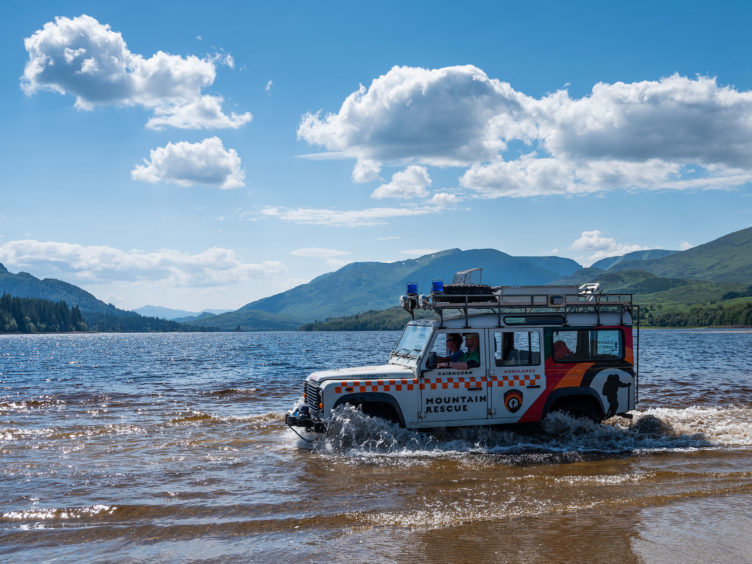One of the world’s most acclaimed mountain rescue leaders has attacked the impact of the creation of a single police force in Scotland and the privatisation of helicopters on crucial search and rescue operations.
John Allen, MBE, the long-serving but now-retired leader of the Cairngorm Mountain Rescue, is concerned about the loss of local knowledge he believes has happened in the process.
Mr Allen, 77, made the comments in a new edition of his book “Cairngorm John”, which was originally published in 2009.
He said: “The loss of Northern Constabulary [when Police Scotland was created in 2013] and with it the loss of mountain rescue’s local connection was bound to be diminishing.
“For example, in response to a 999 call, an ambulance arrived at the Cairngorm Ski Ground car park, looking for a climber with a suspected broken leg.
“After discussion with ski patrol staff, it became apparent the call had come from an injured climber in the relatively inaccessible Coire an Lochain and was therefore a task for the Cairngorm MRT. The rescue was only begun some two hours after the original call. Had the local police station been involved, this inconvenient delay would not have occurred.
“Rapid and accurate communication is essential and something practical has been lost, along with the relationship on the ground. Local knowledge is irreplaceable.”
Mr Allen has been equally sceptical about the effect of the privatisation of the UK search and rescue service, which was handed over to Bristow Group from the RAF in a new 10-year contract, starting in 2015.
He added: “At the time of the privatisation, the new service was promised to be ‘the same or better’. Four years down the line, no rescue team in the new Independent Mountain Rescue (iSMR) service would have said this was the case.”
Mr Allen cited one example of a helicopter training exercise on a “beautiful day” in the Cairngorms which was called off at 15 minutes notice, due to ‘triggered lightning being shown as threatening.”
He said: “Triggered lightning is not a new phenomenon, but only in recent years has it been recognised as a dangerous issue.
“When the new contract was granted, civilian mountain rescue teams were not informed of this possibility and the lack of communication only exacerbated an already deteriorating situation.
“It could be the contractor’s attention was focused mainly on the sea, but the contract was, of course, intended for both sea and mountain rescues.
“This ‘one size fits all’ attitude may work better for offshore incidents than those in a mountain environment. Sea and mountain rescues present very different challenges.
“But a different approach from the RAF was bound to be taken by a commercial contractor. Perhaps a single contract for these two functions needs closer examination.”
Mr Allen was particularly scathing about the lack of awareness of the difficulties faced by Scottish mountain rescue teams, which he argues has been displayed by some politicians in Westminster.
He said: “As a result of a series of incidents, and others with sister teams, the iSMR wrote a letter to the police in July, 2018.
“It was not acknowledged, although a reply came from the Department of Transport in September, stating: ‘No action possible.’
“This was perhaps not surprising as the MP involved in the decision, Nus Ghani, has a constituency in the well-known mountain area of Wealdon in East Sussex and cannot be expected to show an informed approach.”
The new edition of “Cairngorm John” will be published by Inverness-based Sandstone Press on September 26.


